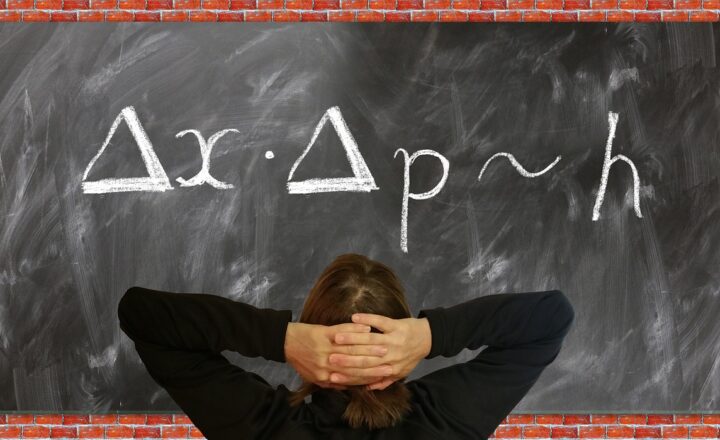
Mathematics is often said to be the universal language, a means by which we can describe the complexities of the universe. From the orbits of planets to the behavior of subatomic particles, mathematics provides a framework that not only expresses these phenomena but also makes them comprehensible. This article explores how mathematics evolved to become the language through which we understand our world and the cosmos.
1. The Historical Roots of Mathematics
Mathematics has its roots in ancient civilizations, where it emerged as a tool for trade, astronomy, and land measurement. The Babylonians, Egyptians, and Greeks laid the foundation of mathematical concepts that continue to influence modern science.
– **Babylonian Numerals:** The Babylonians introduced a base-60 numerical system, which is why we still have 60 seconds in a minute and 360 degrees in a circle.
– **Egyptian Geometry:** The Egyptians utilized geometry for surveying land and constructing their iconic pyramids, giving rise to concepts such as the Pythagorean theorem long before Pythagoras was born.
– **Greek Contributions:** The Greeks sought to formalize mathematics, introducing proof and deductive reasoning. Mathematicians like Euclid and Archimedes established principles that allowed for the development of geometry and mathematical logic.
Through these early developments, mathematics transitioned from practical uses to a more abstract form, laying the groundwork for its eventual role as a language for science.
2. Mathematics as a Descriptive Tool
Mathematics is not merely a collection of numbers and formulas; it is a language that describes relationships, quantities, and patterns found in nature. This ability to describe phenomena succinctly and accurately is what has led to its adoption in scientific disciplines.
**Key Examples:**
– **Physics:** Newton’s laws of motion and gravity are articulated through equations that quantify how objects move and interact, demonstrating that physical laws can be modeled mathematically.
– **Biology:** Population dynamics can be represented through mathematical models that predict the growth and decline of species, helping us understand ecosystems.
– **Chemistry:** The behavior of molecules and reactions can be expressed through mathematical formulas, allowing chemists to predict the outcomes of chemical reactions.
In essence, mathematics provides a way to encapsulate complex ideas into understandable and communicable forms, making it invaluable in scientific inquiry.
3. The Role of Mathematics in Modern Science
In contemporary science, mathematics serves as a unifying language that advances our understanding of the universe. This is evident in several domains:
– **Astronomy:** The laws governing celestial bodies revolve around mathematical equations. Kepler’s laws of planetary motion, for instance, describe the orbits of planets in a mathematically precise manner.
– **Quantum Mechanics:** The subatomic world is described by mathematics, where probabilities and uncertainties play a crucial role. Concepts such as wave functions and probability distributions illustrate how mathematics is embedded in the fabric of reality.
– **Relativity:** Einstein’s theory of relativity utilizes advanced mathematics to explain the curvature of space-time and its relationship to gravity, changing our understanding of the cosmos fundamentally.
These examples demonstrate why many scientists regard mathematics as the essential tool for exploring and articulating the principles that govern the universe.
4. Mathematics: A Universal Language
One of the most compelling aspects of mathematics is its universality. Regardless of language, culture, or geographical boundaries, the principles of mathematics remain constant. This is particularly evident in:
– **International Collaboration:** Scientists from different countries and disciplines often collaborate on research where mathematics serves as a common language, ensuring that they can communicate complex ideas effectively.
– **Cross-Disciplinary Applications:** Mathematics transcends its own discipline to offer tools to other fields such as economics, engineering, and computer science, thereby reinforcing its universal character.
– **Philosophical Inquiry:** Philosophers, such as Bertrand Russell and Kurt Gödel, have explored the implications of mathematical truths, delving into the nature of mathematics as an abstract entity that exists independently of the physical world.
Mathematics, thus, acts as a bridge that connects various domains of human knowledge and experience, showing that it is more than a mere subject—it is a fundamental part of how we make sense of our world.
5. Future of Mathematics in Understanding the Universe
As we continue to explore deeper into the fabric of reality—from quantum computing to the nature of dark matter—mathematics will play an even more critical role in shaping our understanding. The exciting developments in artificial intelligence and machine learning signify new frontiers where mathematical models will be essential in deriving insights from vast datasets.
**Conclusion:** The journey of mathematics from rudimentary counting and measurement to its current status as the language of the universe showcases its immense power. It speaks to the innate human desire to understand and quantify the world around us. As we advance in science and technology, the language of mathematics will only become more indispensable in our quest for knowledge.
In summary, mathematics is not just an academic pursuit but a powerful tool that persists in deciphering the mysteries of the universe. Its evolution as a language reflects the growing complexity of our understanding and serves as a reminder of how interconnected we are to the cosmos.
Whether you are a scientist, a student, or simply a curious mind, embracing the language of mathematics unlocks a deeper appreciation for the wonders of the universe around us.








